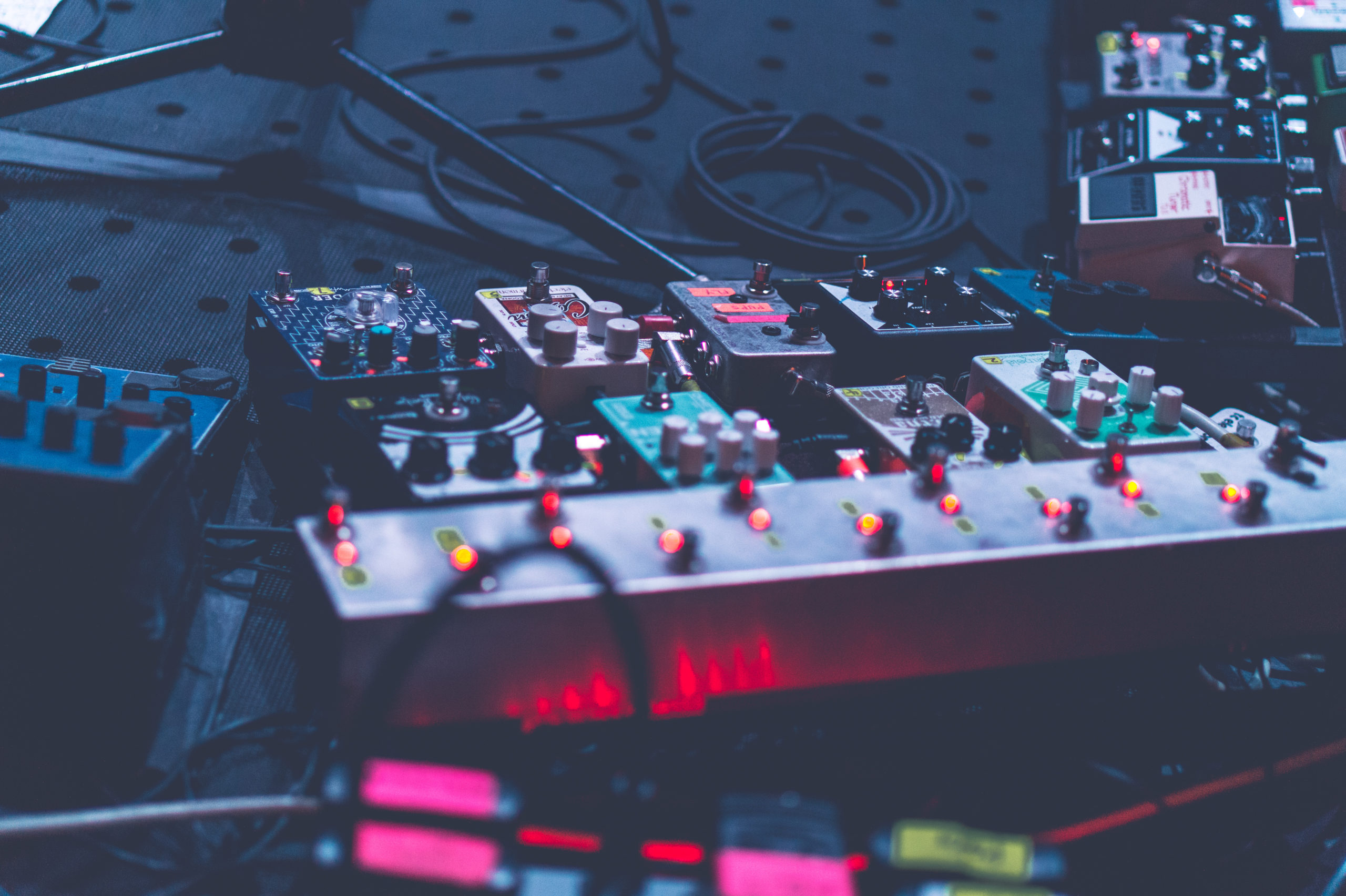Be open to the reality of what you sound like.
I understand, it sounds so cool to play with distortion and delay and reverb and all those lovely tasties that soup up our tone and make us sound angelic.
I LOVE those things. They are amazing and really take the sound of what we are doing up a notch.
But really, how useful are they for practice? Does it really make sense to work on speed and precision with a warm blanket of gain and reverb?
The hard part about getting better is being realistic about where we are at. It is fun to doctor up your tone and just sit and play for ever and ever, and you should do that… sometimes.
From day to day while practicing, just be willing to turn down the juicy effects (leave just a little reverb if you like) and really listen to yourself. Record yourself practicing and you’ll start to see your weaknesses.
It isn’t a bad thing to see your weaknesses; it’s actually the most beneficial thing you can do for your playing.
We all want to think we are better than we are. Confidence is great, but a realistic idea of what we are capable of is even better.
Be realistic. Don’t get down on yourself for it, but be your own harshest critic. If you are already aware of all of your flaws, you can’t be affected by other people who want to put you down. You already know it.
And then you can work on it.
Let me tell you a little story.
In my early years after college, I played in a band that was extremely fun and high energy. You could call it jazz-fusion, so the idea was to play to your personal limit every night on stage.
Improvisation was built in to the complex compositions, and if you weren’t on top of your game, it showed.
Well, I had a fairly lofty opinion of myself. After all, people would come up and high-five me after shows and congratulate me on being awesome, so I believed it.
This went on for a while. (Head increases in size). Until one day.
A six letter word was the pin that popped my balloon. S-T-U-D-I-O.
In the studio, I suddenly found that the sound of my guitar just wasn’t quite right. My licks just weren’t quite as precise as I thought they were. I started making excuses…
“MY HEADPHONE MIX IS WRONG!!”
“THE MIC PLACEMENT ISN’T WORKING!”
“THE DRUMMER IS DRAGGING”
“MY PEDAL NEVER SOUNDED THIS GARBAGE-EY BEFORE”
Notice anything about these sentiments?
It wasn’t me. Couldn’t be me.
If I always sounded like this, how was I getting all of those high-fives?
(ominous music goes here)
Finally, unbidden, the thought came to me.. Do I suck?
The answer was, well, not completely yes, but definitely in part, YES.
My time was horrible. My tone was garbage. My note choice was lame. It was all garbage (ok not completely, but there was a lot of garbage happening).
So I was crushed. The engineer had to fix my lame time all over the place. My bandmates edited my parts to no end.
So I just quit music forever… wait no, I didn’t do that even though I felt like it. What I did, was absorb that blow to my self-esteem and get to work.
I used this as a motivator and decided to get better.
The metronome became a staple in my practice. I stopped noodling with gain and reverb and delay and just plugged in with a dry clean tone and worked on the fundamentals.
Slowly it started to reap rewards.
As my time improved I started to realize how I had been overplaying my ability. I had been trying to play things that I would have been able to play if I was better than I was, and so was holding myself back from getting better.
Weird how it works like that.
I kept on like that and over time things improved. The improvement started slowly but gained momentum.
I’ve improved a TON in the 12 years since this difficult realization, but I still hold on to that lesson with both hands. I never get too happy with myself in my playing because that’s when things start to slide. I’m my own harshest critic, because that way I keep myself in check.
And, to this day, I practice with a dry, clean sound.

Leave a Reply
You must be logged in to post a comment.